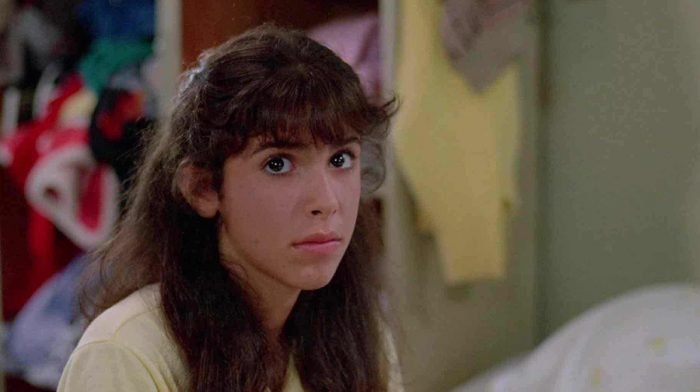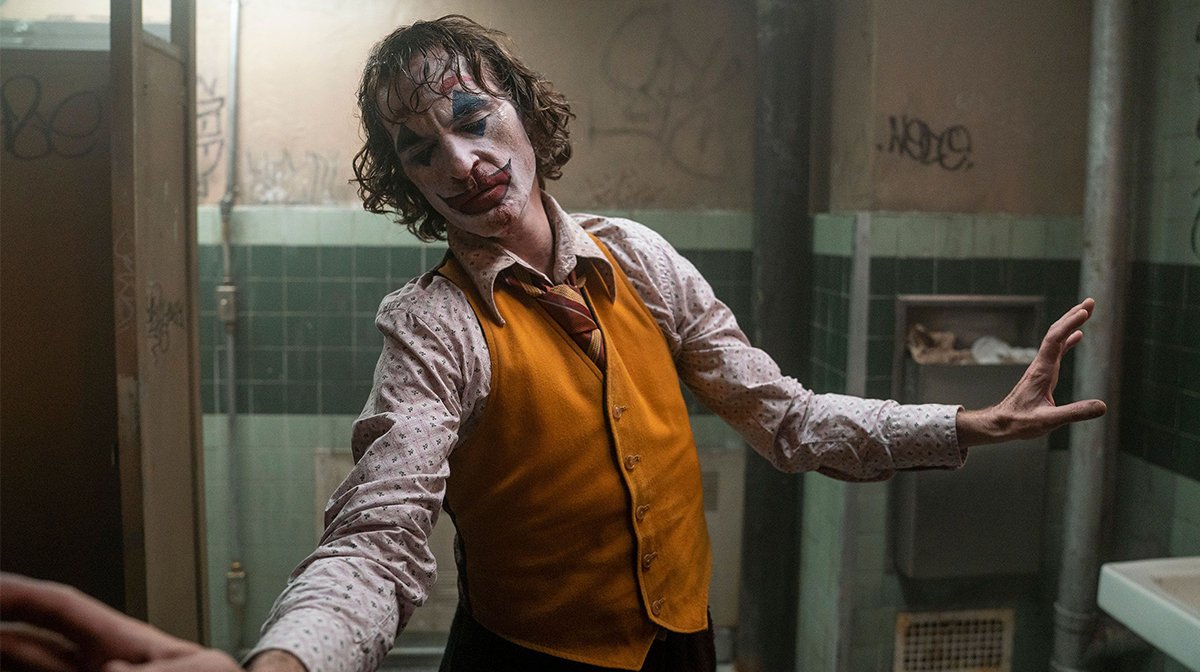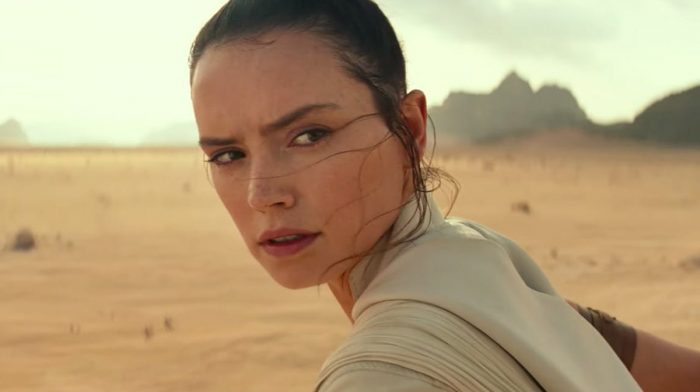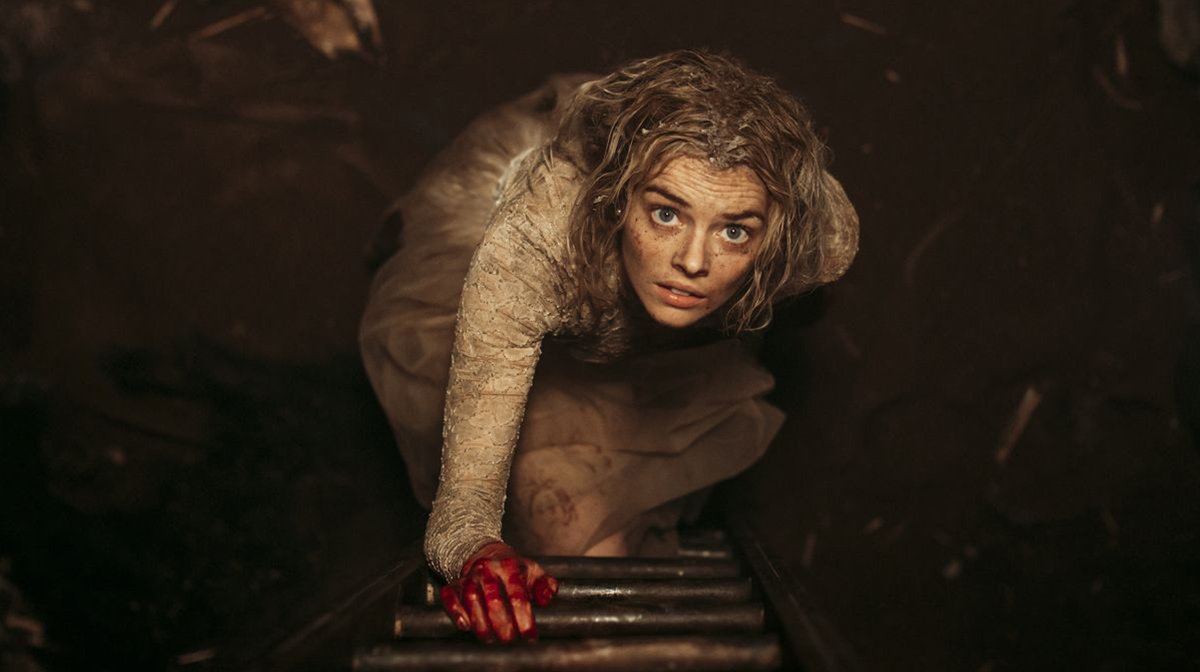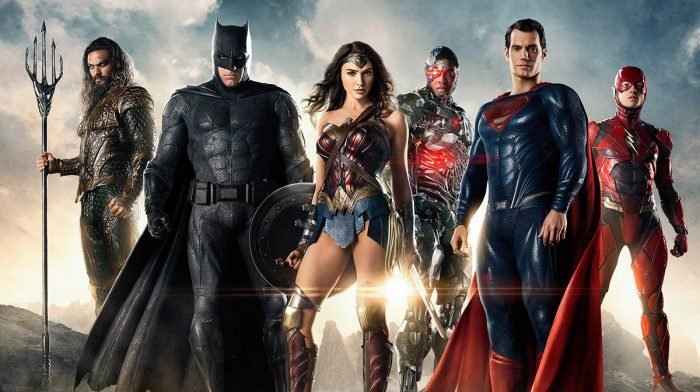Facebook. Despite being wrapped up in scandals such as Cambridge Analytica, it has continued to dominate – recently recording over 2.7 billion active users, even whilst new platforms like TikTok grow rapidly.
That’s right. 2.7 billion. For context, that’s roughly a third of the world’s population.
An online powerhouse like none other that has reinvented the way we communicate, advertise, consume content and even vote, it remains the definitive social media site, making the name of David Fincher’s biographical drama still rather apt.
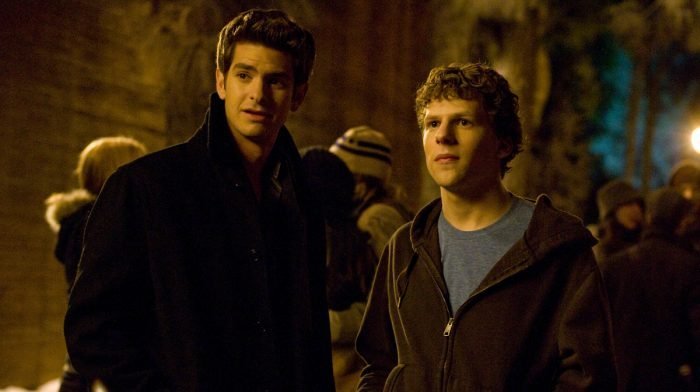
Sony Pictures Releasing
Released a decade ago today, The Social Network chronicles the founding of Facebook, and thus the morally ambiguous rise of creator Mark Zuckerberg.
Part supervillain origin story, part gripping legal drama, the film also focuses on the lawsuits brought against the company by both Eduardo Saverin and the Winklevoss twins, both essentially claiming they had been f*cked over by Zuckerberg.
It is strange to think that those two lawsuits used to be Facebook’s biggest concerns, long before the data leaks, privacy debates and various incidents that have commanded newspaper front pages.
And that’s before the phantom of Cambridge Analytica came to haunt the site.
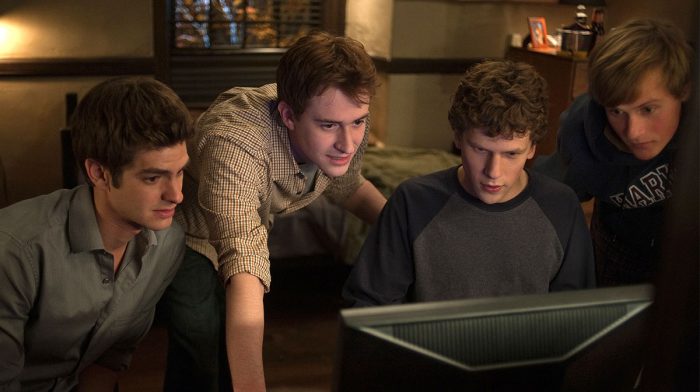
Sony Pictures Releasing
The world has dramatically changed since the movie’s release, including for both Zuckerberg and the site.
However, whilst Fincher’s film tells the story of a different era of Facebook, in a way it laid out the next chapters of the site’s journey, with its themes being very much still relevant today.
Many argue that The Social Network is the most significant film of the past ten years, simply because it is about Facebook and the rise of social media, something which has defined the decade.
But whilst this is true, the way Fincher’s movie cleverly analyses the crucial themes of power, corruption, class, friendship and isolation also marks it out as the most important film of the decade.
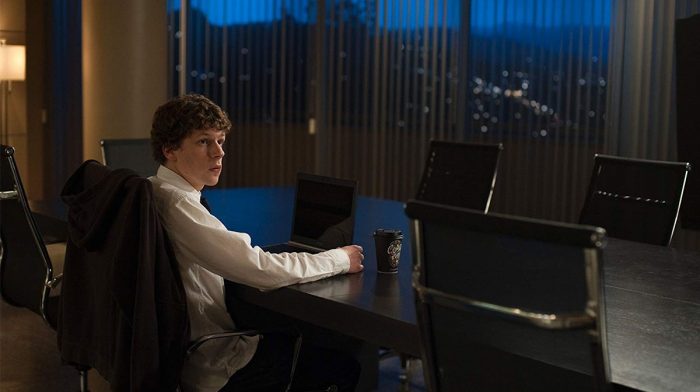
Sony Pictures Releasing
In fact, arguably The Social Network isn’t even about Facebook, but instead about loneliness. It just so happens the isolated man at the centre of the story is the one and only Mark Zuckerberg.
Writer Aaron Sorkin really taps into this central irony, that whilst Facebook is supposedly all about connection, its creation is driven by the opposite – disconnection.
This is mapped out from the very first scene, which in typical Sorkin fashion takes place at super-speed with Jesse Eisenberg’s Zuckerberg and Rooney Mara’s Erica magnificently delivering the witty and verbose script at a breakneck pace.
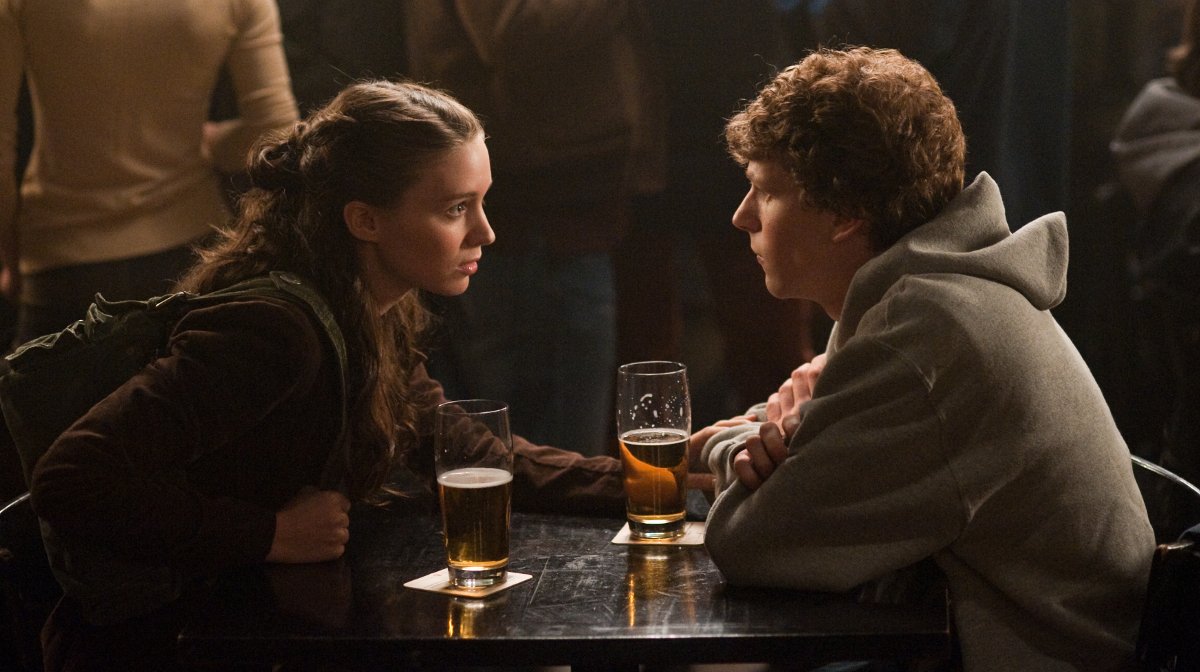
Sony Pictures
The scene may be short but it tells us everything we need to know about Zuckerberg, establishing him as intelligent, arrogant, abrasive but, and most importantly, disconnected from society, a man with a talent for pushing people away.
In a harsh blow Erica here tells him the reason girls don’t like him isn’t because he’s a nerd, but ‘it’ll be because you’re an asshole’, thus setting up the events of the movie.
Although Zuckerberg spends much of the film in crowded rooms, at parties and in the hubbub of the Facebook offices, really he is always alienated and alone, as emphasised in the concluding shots which sees him continually refreshing his friend request to Erica.
Just before he does so Rashida Jones’ character notes that “you’re not an asshole, Mark, but you’re trying so hard to be”, and whilst it is therefore left up to the audience to decide whether they agree with this statement, it also highlights once again Zuckerberg’s isolation from society.
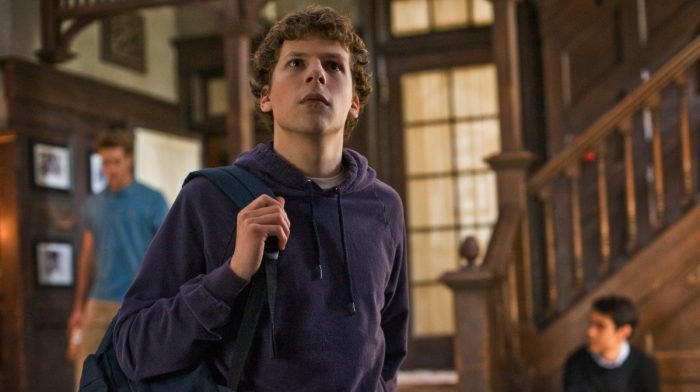
Sony Pictures Releasing
Facebook started with a break-up and in a way it ended with one too, in respect to Saverin’s parting of ways with both the site and Zuckerberg.
Although the lines between good and bad are blurred in Fincher’s movie, if you had to choose who the villain of the piece was, it would be Zuckerberg, making Andrew Garfield’s business partner and friend Saverin the ‘hero’.
Saverin is continually there for Zuckerberg, either as a friend with a beer in-hand to help his pal through a break-up, or as a business partner providing money, contacts and ideas.
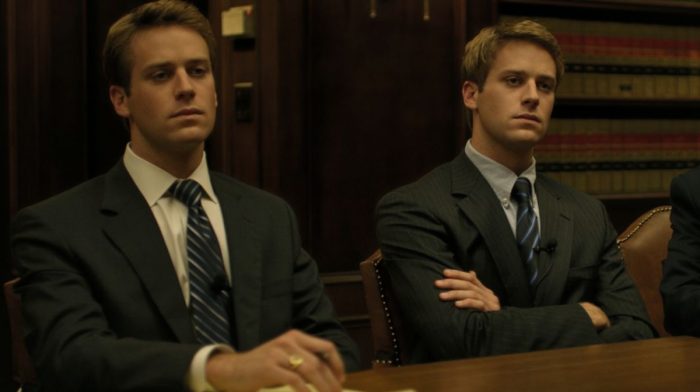
Sony Pictures Releasing
As established in the opening scene though, Zuckerberg is an ‘asshole’, and so we are just waiting for him to betray arguably his only friend, which of course he does, repeatedly.
The more the site grows, the deeper the betrayal becomes, reflecting not only how increasingly disconnected Zuckerberg is from society, but also how he is now being driven by power.
And of course jealously too, another defining theme of the movie. It is made incredibly clear that the reason Zuckerberg turns against Saverin is because his friend got into The Phoenix Club, the final club he is so desperate to become a part of.
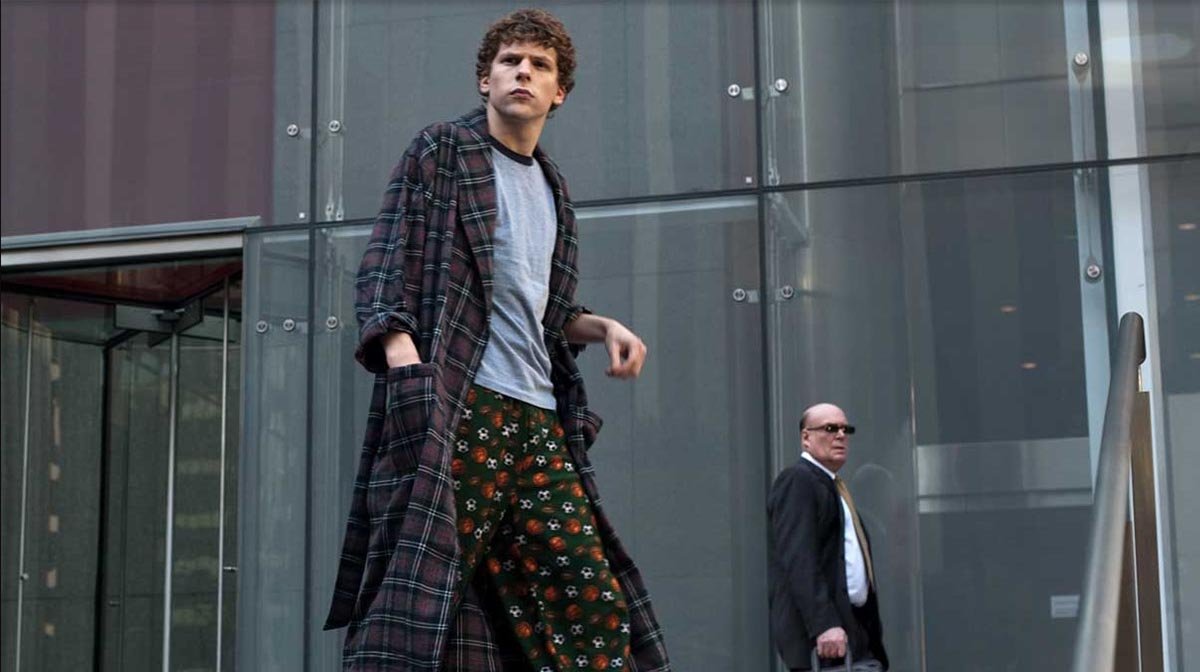
Sony Pictures Releasing.
Despite his genius, success and wealth, the closest Zuckerberg ever comes to being in a club is when he is taken to the bike room of The Porcellian Club by the Winklevoss twins and Divya Narendra – who of course he also betrays.
Although this is a commentary on the class system in America and the barriers it presents, it once again emphasises just how isolated Zuckerberg is, left out in the cold of the lobby.
Even at Facebook’s offices Zuckerberg is alone, surrounded by people all plugged into their computers, disconnected from the real world.
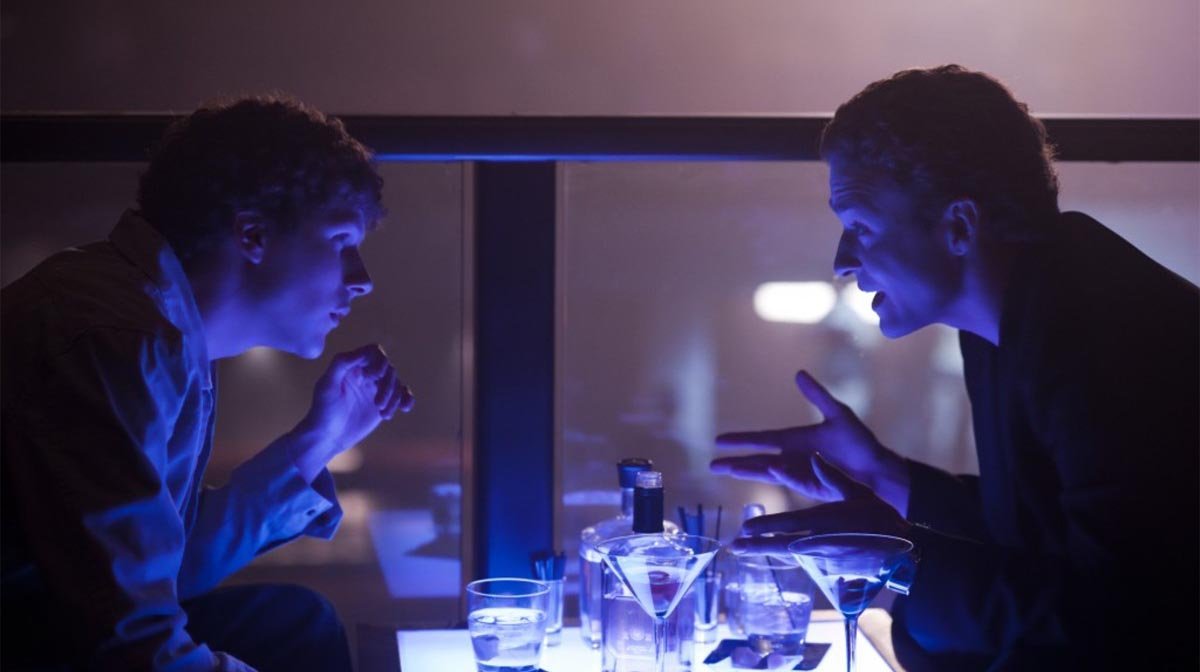
Sony Pictures Releasing
Fincher’s movie was never going to predict just how big Facebook grew to be, and the large role it would play in politics, misinformation and privacy debates.
However, what it did understand a decade ago was that crucial relationship between social media and loneliness, something which has been much talked about since as sites like Facebook, Twitter and Instagram have grown and grown, increasingly disconnecting people from their realities.
You may have 500 friends on Facebook but how many of those people do you actually speak to? And connect with? In the real world that is.
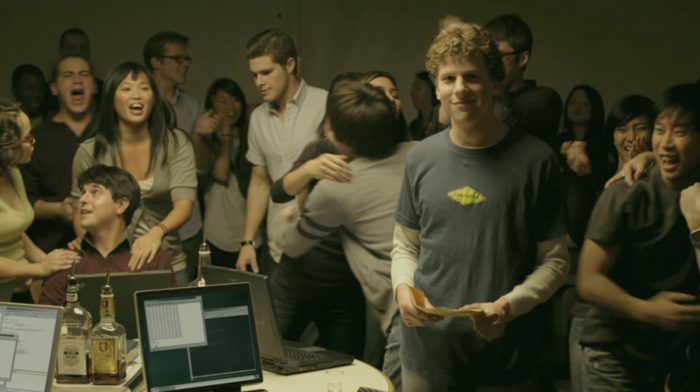
Sony Pictures Releasing
Not only did Zuckerberg change the world of technology, politics, economics and more for good or for worse, but with Facebook he also helped usher in a new era of loneliness, a journey which started with his own disconnection from society.
That final scene which sees Zuckerberg continually refresh his pending friend request to Erica will not only haunt the Facebook founder himself, but the rest of the world too.
For all things pop culture and the latest news, follow us on Instagram, Twitter, Facebook, YouTube and TikTok.
